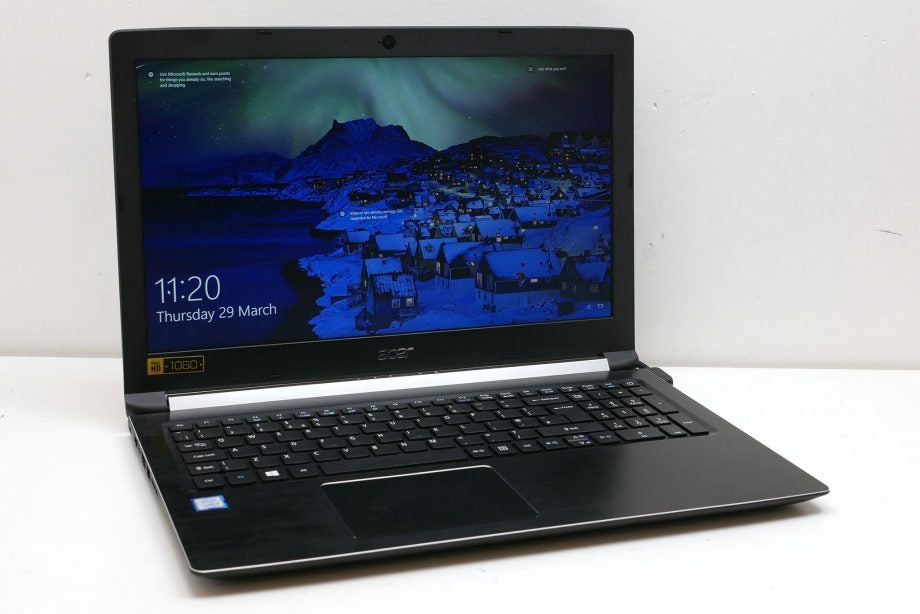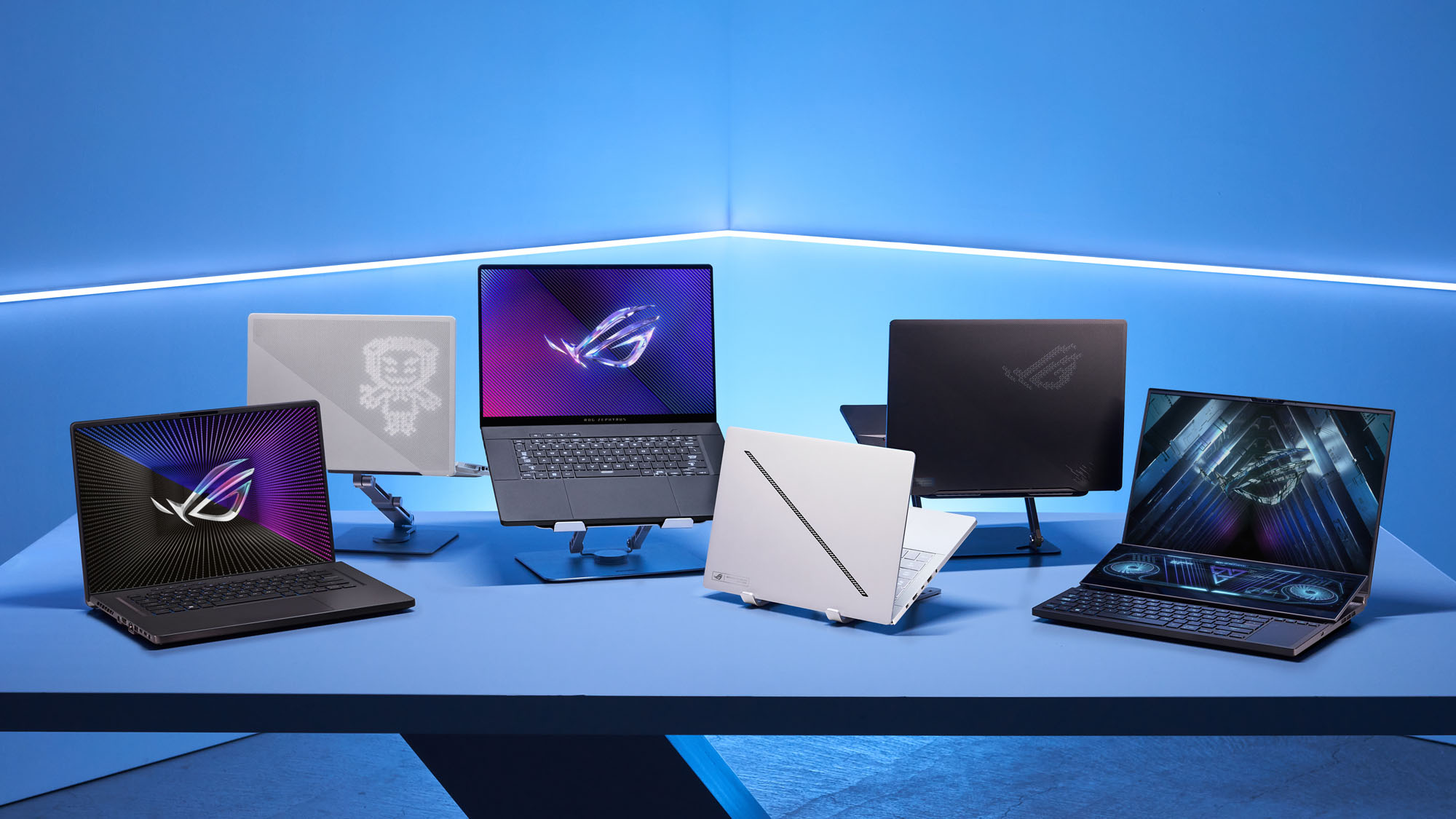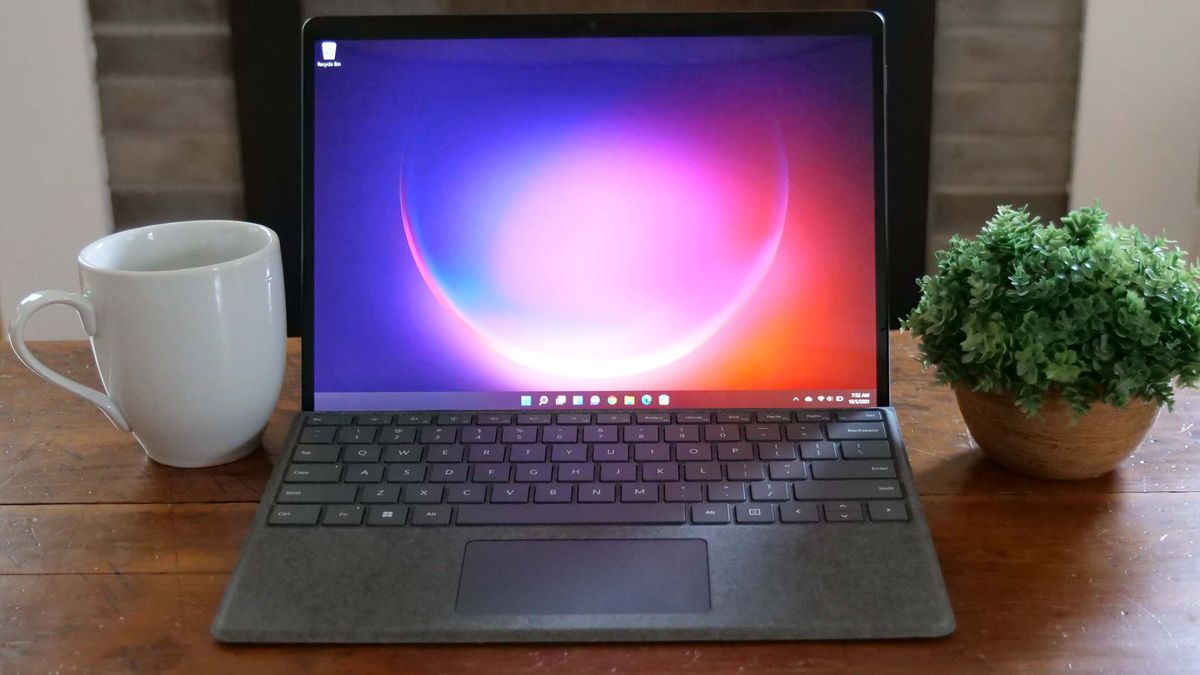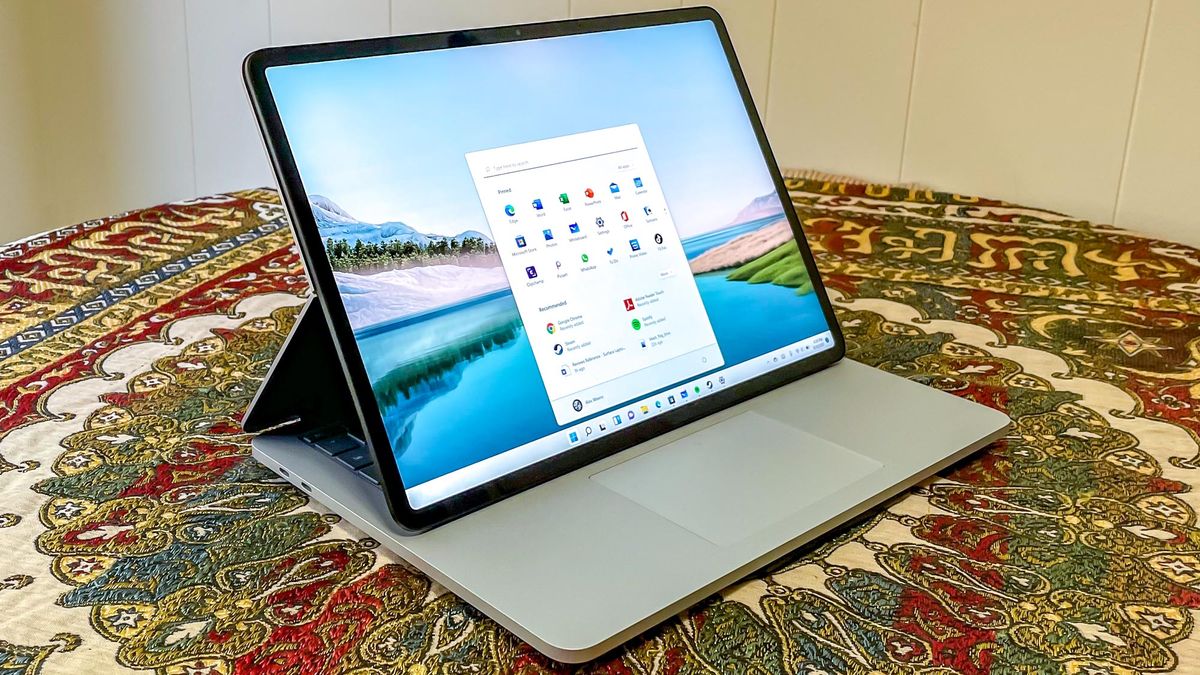
The Best Laptops for Engineering Students…..As an engineering student, you need a laptop that can handle the demanding workload of your coursework. From complex CAD designs and data analysis to seamless essay writing, your laptop needs to be a workhorse that can keep up with your needs. In this comprehensive guide, we’ve put the best laptops for engineering students to the test, comparing a range of configurations and models from top brands like Apple, HP, Dell, Asus, and more.
Our team of experts has meticulously evaluated these laptops, considering factors such as performance, portability, ergonomics, and value for money. Whether you’re looking for a powerful mobile workstation, a budget-friendly option, or a versatile 2-in-1 device, we’ve got you covered.
In the following sections, we’ll dive deep into the specifications, strengths, and potential drawbacks of each top pick, helping you make an informed decision on the best laptop for your engineering studies.
LIST OF PRODUCTS IN THE ARTICLE
Guide to Buying Laptops for Engineering Students
Choosing the right laptop for engineering studies is crucial as it must handle demanding software, multitasking, and possibly even 3D rendering. Here’s a detailed guide to help you select the best laptop that meets your academic and practical needs.
1. Processor (CPU)
Recommendation: Intel Core i7 or AMD Ryzen 7
- Why: Engineering software such as AutoCAD, MATLAB, and SolidWorks are resource-intensive. A powerful processor ensures smooth operation and fast processing times.
- Tip: Look for the latest generation processors for improved performance and energy efficiency.
2. Graphics (GPU)
Recommendation: Dedicated GPU (NVIDIA GeForce GTX/RTX or AMD Radeon RX)
- Why: Applications for 3D modeling, simulations, and rendering require a strong GPU. Integrated graphics may not suffice for these tasks.
- Tip: An NVIDIA GeForce GTX 1660 or higher is recommended for most engineering applications. For more intensive work, consider RTX 20-series or 30-series.
3. Memory (RAM)
Recommendation: Minimum 16GB, preferably 32GB
- Why: Sufficient RAM is necessary for multitasking and running large datasets and complex computations without slowdowns.
- Tip: Check if the laptop allows RAM upgrades for future-proofing.
4. Storage
Recommendation: SSD (Solid State Drive), 512GB or more
- Why: SSDs offer faster boot times, quicker application launches, and better overall system responsiveness compared to HDDs.
- Tip: Consider a laptop with both SSD (for OS and programs) and HDD (for additional storage) if budget allows.
5. Display
Recommendation: 15.6-inch Full HD (1920×1080) or higher resolution
- Why: A larger and higher resolution display provides more screen real estate, which is beneficial for detailed work on software interfaces.
- Tip: IPS panels offer better color accuracy and wider viewing angles.
6. Battery Life
Recommendation: At least 6-8 hours of battery life
- Why: Engineering students often work on the go, and reliable battery life ensures productivity without frequent charging.
- Tip: Read reviews for real-world battery performance as manufacturer claims can sometimes be optimistic.
7. Build Quality and Portability
Recommendation: Durable build with a weight of 4-5 pounds
- Why: A laptop for engineering students should be sturdy enough to handle daily transportation and occasional knocks while remaining portable.
- Tip: Look for laptops with a metal chassis or reinforced design.
8. Operating System
Recommendation: Windows 10 or 11
- Why: Most engineering software is optimized for Windows. Ensure compatibility with essential tools and applications.
- Tip: Some students prefer dual-boot systems with Linux for specific tasks. Ensure the laptop supports this configuration if needed.
9. Connectivity
Recommendation: Multiple USB ports (including USB-C), HDMI, and Ethernet
- Why: Engineering students often need to connect various peripherals such as external monitors, projectors, and storage devices.
- Tip: Check for Thunderbolt 3 or 4 ports for faster data transfer and versatile connectivity.
10. Keyboard and Touchpad
Recommendation: Comfortable keyboard with good travel and a responsive touchpad
- Why: Long hours of typing and precision touchpad use are common for engineering students.
- Tip: Consider laptops with backlit keyboards for working in low-light environments.
11. Warranty and Support
Recommendation: At least 1-year warranty with options for extended coverage
- Why: Engineering students need a reliable machine, and good warranty support can provide peace of mind.
- Tip: Look for brands with strong customer support and easy access to service centers.
Selecting the right laptop for engineering students involves balancing performance, durability, and portability. Ensure the laptop you choose meets the specific software requirements of your course and can handle multitasking efficiently. Investing in a robust and powerful machine will not only aid in your studies but also serve you well into your professional career.
By considering the recommendations above, you can find a laptop that offers excellent value and performance tailored to the demanding needs of engineering education.
LIST OF PRODUCTS IN THE ARTICLE
Best Laptop for Engineering Students Overall
(Best Laptops for Engineering Students)Dell XPS 15″

Specifications
- Processor: Intel Core i7-11800H
- Graphics: NVIDIA GeForce RTX 3050 Ti
- RAM: 16GB DDR4
- Storage: 512GB SSD
- Display: 15.6″ 4K OLED, 400 nits, 100% DCI-P3 color gamut
- Weight: 4.5 lbs
Reasons to Buy
- Powerful Performance: The Dell XPS 15″(Best Laptops for Engineering Students) packs a punch with its Intel Core i7-11800H processor and NVIDIA GeForce RTX 3050 Ti graphics, making it a workhorse for demanding engineering applications.
- Stunning Display: The 4K OLED display offers vibrant colors, deep blacks, and exceptional clarity, perfect for detailed CAD work and media consumption.
- Compact and Portable: Despite its impressive specs, the XPS 15″(Best Laptops for Engineering Students) maintains a slim and lightweight design, making it easy to carry around campus.
- Excellent Connectivity: With a range of ports, including Thunderbolt 4, HDMI, and USB-C, you can easily connect your peripherals and external displays.
- Long Battery Life: The XPS 15″(Best Laptops for Engineering Students) boasts up to 15 hours of battery life, ensuring you can work untethered for extended periods.
Reasons to Avoid
- Premium Pricing: The Dell XPS 15″(Best Laptops for Engineering Students) is a premium laptop, and the price tag may be out of reach for some engineering students on a tight budget.
- Runs Warm Under Load: The powerful components can cause the laptop to heat up during intensive tasks, which may impact user comfort.
- Limited Customization: The XPS 15″(Best Laptops for Engineering Students) offers a relatively fixed configuration, with limited options for upgrading components like storage or RAM.
Best Budget Laptop for Engineering Students
(Best Laptops for Engineering Students)Acer Aspire 5

Specifications
- Processor: AMD Ryzen 5 5500U
- Graphics: Integrated AMD Radeon Graphics
- RAM: 8GB DDR4
- Storage: 256GB SSD
- Display: 15.6″ Full HD IPS, 250 nits
- Weight: 3.97 lbs
Reasons to Buy
- Affordable Price Point: The Acer Aspire 5(Best Laptops for Engineering Students) offers excellent value for money, making it a great option for engineering students on a budget.
- Capable Performance: The AMD Ryzen 5 5500U processor and 8GB of RAM provide sufficient power for most engineering tasks, such as CAD work and data analysis.
- Decent Storage: The 256GB SSD provides ample storage space for your files and documents, with fast read/write speeds.
- Compact and Lightweight: At just under 4 lbs, the Aspire 5 is easy to carry around campus.
- Decent Battery Life: With up to 8 hours of battery life, you can work unplugged for a good portion of the day.
Reasons to Avoid
- Limited Graphics Performance: The integrated AMD Radeon graphics may struggle with more demanding 3D modeling or rendering tasks.
- Display Quality: The 15.6″ Full HD IPS display, while decent, may not offer the same level of color accuracy and brightness as more premium laptops.
- Upgradability Limitations: The Aspire 5(Best Laptops for Engineering Students) has limited options for upgrading components like RAM and storage, which may be a concern for long-term use.
Best MacBook for Engineering Students
(Best Laptops for Engineering Students)Apple MacBook Pro 16″

Specifications
- Processor: Apple M1 Pro or M1 Max
- Graphics: Integrated M1 Pro or M1 Max
- RAM: 16GB or 32GB
- Storage: 512GB SSD or 1TB SSD
- Display: 16.2″ Liquid Retina XDR, 1600 nits peak brightness
- Weight: 4.7 lbs
Reasons to Buy
- Exceptional Performance: The Apple M1 Pro and M1 Max chips offer unparalleled processing and graphics power, making them ideal for engineering workloads.
- Stunning Display: The 16.2″ Liquid Retina XDR display boasts exceptional color accuracy, contrast, and brightness, perfect for CAD, visualization, and media work.
- Long Battery Life: The MacBook Pro 16″(Best Laptops for Engineering Students) can last up to 21 hours on a single charge, ensuring you can work for extended periods without needing to recharge.
- Seamless Integration: If you’re already in the Apple ecosystem, the MacBook Pro integrates seamlessly with your other Apple devices, enhancing productivity and collaboration.
- Durable and Portable: The MacBook Pro 16″(Best Laptops for Engineering Students) maintains a slim and lightweight design while offering a sturdy, premium build quality.
Reasons to Avoid
- Higher Price Point: The MacBook Pro 16″(Best Laptops for Engineering Students) is a premium laptop, and the price tag may be out of reach for some engineering students.
- Limited Upgradability: The MacBook Pro has limited options for upgrading components like RAM and storage after purchase, which may be a concern for long-term use.
- Software Compatibility: Some engineering software may not be as well-optimized for macOS, which could lead to compatibility issues or the need for virtual environments.
Best Engineering Laptop for Gamers
(Best Laptops for Engineering Students)Asus ROG Zephyrus G14

Specifications
- Processor: AMD Ryzen 9 5900HS
- Graphics: NVIDIA GeForce RTX 3060
- RAM: 16GB DDR4
- Storage: 1TB SSD
- Display: 14″ WQHD 120Hz IPS, 100% sRGB, Adaptive-Sync
- Weight: 3.5 lbs
Reasons to Buy
- Powerful Performance: The AMD Ryzen 9 5900HS processor and NVIDIA GeForce RTX 3060 graphics provide excellent performance for both engineering tasks and gaming.
- Compact and Lightweight: The Zephyrus G14(Best Laptops for Engineering Students) offers a balance of power and portability, weighing just 3.5 lbs and featuring a compact 14-inch form factor.
- High-Quality Display: The WQHD 120Hz IPS display delivers smooth visuals, accurate colors, and adaptive sync technology for an immersive experience.
- Versatile Connectivity: With USB-C, HDMI, and a range of other ports, the Zephyrus G14(Best Laptops for Engineering Students) provides flexible connectivity options.
- Decent Battery Life: The laptop’s battery life, while not as impressive as some other options, is still respectable for a gaming-focused laptop.
Reasons to Avoid
- Limited Webcam: The Zephyrus G14(Best Laptops for Engineering Students) does not have an integrated webcam, which may be a concern for virtual classes or online meetings.
- Runs Hot Under Load: The high-performance components can cause the laptop to generate significant heat, which may impact user comfort during extended use.
- Limited Upgradability: The Zephyrus G14(Best Laptops for Engineering Students) has limited options for upgrading components like RAM and storage after purchase.
Best 2-in-1 Laptop for Engineering Students
(Best Laptops for Engineering Students)Microsoft Surface Pro 8

Specifications
- Processor: 11th Gen Intel Core i7
- Graphics: Intel Iris Xe Graphics
- RAM: 16GB LPDDR4x
- Storage: 256GB SSD
- Display: 13″ PixelSense Flow Display, 120Hz refresh rate, 2880 x 1920 resolution
- Weight: 1.96 lbs (tablet only)
Reasons to Buy
- Versatile 2-in-1 Design: The Surface Pro 8(Best Laptops for Engineering Students) offers the flexibility of a tablet and the functionality of a laptop, allowing you to switch between modes seamlessly.
- High-Quality Display: The 13-inch PixelSense Flow Display delivers a sharp, vibrant, and responsive touch experience, perfect for digital sketching and note-taking.
- Portable and Lightweight: The tablet-only weight of 1.96 lbs makes the Surface Pro 8(Best Laptops for Engineering Students) highly portable and easy to carry around campus.
- Excellent Stylus Support: The Surface Slim Pen 2 provides a natural and precise writing and drawing experience, ideal for engineering coursework.
- Robust Connectivity: The Surface Pro 8 offers USB-C, USB-A, and Surface Connect ports, ensuring compatibility with a wide range of accessories and peripherals.
Reasons to Avoid
- Limited GPU Performance: The integrated Intel Iris Xe Graphics may struggle with more demanding engineering applications, such as 3D modeling or simulations.
- Keyboard Sold Separately: The Surface Pro 8(Best Laptops for Engineering Students) does not include the Type Cover keyboard by default, which adds to the overall cost of the device.
- Battery Life: While decent, the battery life of the Surface Pro 8(Best Laptops for Engineering Students) may not be as long as some traditional laptops, especially when used in tablet mode.
Best Chromebook for Engineering Students
(Best Laptops for Engineering Students)Acer Chromebook Spin 714

Specifications
- Processor: Intel Core i3-1115G4
- Graphics: Intel UHD Graphics
- RAM: 8GB LPDDR4X
- Storage: 128GB eMMC
- Display: 14″ WQXGA (2560 x 1600) IPS Touchscreen, 3:2 aspect ratio
- Weight: 3.31 lbs
Reasons to Buy
- Affordable Price Point: The Acer Chromebook Spin 714(Best Laptops for Engineering Students) offers a great value proposition, making it an attractive option for engineering students on a budget.
- Versatile 2-in-1 Design: The 360-degree hinge allows you to use the Spin 714(Best Laptops for Engineering Students) as a laptop, tablet, or anything in between, providing flexibility for various engineering tasks.
- Decent Performance: The Intel Core i3 processor and 8GB of RAM provide sufficient power for most engineering-related activities, such as web-based applications and light CAD work.
- Excellent Battery Life: The Spin 714(Best Laptops for Engineering Students) can last up to 10 hours on a single charge, ensuring you can work untethered for extended periods.
- Responsive Touchscreen: The WQXGA IPS touchscreen offers a smooth and responsive experience, making it easy to interact with the device.
Reasons to Avoid
- Limited Storage: The 128GB eMMC storage may not be enough for students who need to store large CAD files or datasets locally.
- Potential Software Limitations: While Chromebooks are becoming more versatile, some engineering-specific software may not be available or optimized for the Chrome OS platform.
- Upgradability Constraints: The Spin 714(Best Laptops for Engineering Students), like most Chromebooks, has limited options for upgrading components, which may be a concern for long-term use.
Best Microsoft Surface for Engineering Students
(Best Laptops for Engineering Students)Microsoft Surface Laptop Studio

Specifications
- Processor: 11th Gen Intel Core i7-11370H
- Graphics: NVIDIA GeForce RTX 3050 Ti
- RAM: 16GB LPDDR4x
- Storage: 512GB SSD
- Display: 14.4″ PixelSense Flow Display, 2400 x 1600 resolution, 120Hz refresh rate
- Weight: 3.83 lbs
Reasons to Buy
- Innovative Convertible Design: The Surface Laptop Studio’s unique 360-degree hinge and the ability to convert it into a tablet or studio mode make it highly versatile for engineering tasks.
- Powerful Performance: The 11th Gen Intel Core i7-11370H processor and NVIDIA GeForce RTX 3050 Ti graphics provide excellent capabilities for engineering software and applications.
- High-Quality Display: The 14.4-inch PixelSense Flow Display offers a sharp, vibrant, and responsive touch experience, ideal for digital sketching and visualization.
- Excellent Stylus Support: The Surface Slim Pen 2 delivers a natural and accurate writing and drawing experience, enhancing the overall productivity of the device.
- Robust Connectivity: The Surface Laptop Studio(Best Laptops for Engineering Students) includes a range of ports, such as USB-C, USB-A, and Surface Connect, ensuring compatibility with various peripherals.
Reasons to Avoid
- Premium Pricing: The Surface Laptop Studio(Best Laptops for Engineering Students) is a high-end device, and the price tag may be a deterrent for some engineering students on a tight budget.
- Limited Upgradability: Like other Surface devices, the Laptop Studio(Best Laptops for Engineering Students) has limited options for upgrading components after purchase, which may be a concern for long-term use.
- Battery Life: While decent, the battery life of the Surface Laptop Studio(Best Laptops for Engineering Students) may not be as long as some traditional laptops, especially when used in more power-intensive modes.
Best 17-inch Laptop for Engineering Students
(Best Laptops for Engineering Students)HP Envy 17”

Specifications
- Processor: 11th Gen Intel Core i7-1165G7
- Graphics: NVIDIA GeForce MX450
- RAM: 16GB DDR4
- Storage: 1TB SSD
- Display: 17.3″ FHD IPS, 300 nits
- Weight: 5.3 lbs
Reasons to Buy
- Large Display: The 17.3-inch FHD IPS display provides ample screen real estate for engineering tasks, such as CAD work and data visualization.
- Powerful Performance: The 11th Gen Intel Core i7-11650G7 processor and NVIDIA GeForce MX450 graphics offer solid performance for engineering applications.
- Ample Storage: The 1TB SSD provides plenty of space for storing large CAD files, datasets, and other engineering-related projects.
- Decent Connectivity: The HP Envy 17t includes a range of ports, including USB-C, USB-A, HDMI, and a media card reader, ensuring compatibility with various accessories.
- Affordable Price Point: Compared to some other 17-inch laptops, the HP Envy 17t offers a relatively affordable price point, making it accessible to more engineering students.
Reasons to Avoid
- Heavier Weight: At 5.3 lbs, the Envy 17t is relatively heavy, which may impact portability and ease of use on the go.
- Modest Graphics Performance: The NVIDIA GeForce MX450 graphics may struggle with more demanding 3D modeling or rendering tasks, especially compared to dedicated gaming laptops.
- Battery Life: The battery life of the Envy 17t may not be as impressive as some other laptops, especially when running resource-intensive engineering applications.
Best Premium Laptop for Engineering Students
(Best Laptops for Engineering Students)Razer Blade 15 Advanced

Specifications
- Processor: 12th Gen Intel Core i7-12800H
- Graphics: NVIDIA GeForce RTX 3070 Ti
- RAM: 16GB DDR5
- Storage: 1TB SSD
- Display: 15.6″ QHD 240Hz IPS, 100% DCI-P3 color gamut
- Weight: 4.4 lbs
Reasons to Buy
- Exceptional Performance: The 12th Gen Intel Core i7-12800H processor and NVIDIA GeForce RTX 3070 Ti graphics deliver outstanding performance for even the most demanding engineering tasks.
- High-Quality Display: The 15.6-inch QHD 240Hz IPS display offers a smooth, responsive, and color-accurate visual experience, perfect for CAD, visualization, and media consumption.
- Sleek and Portable Design: The Razer Blade 15 Advanced maintains a slim and lightweight profile, making it easy to carry around campus.
- Extensive Connectivity: The laptop boasts arange of ports, including Thunderbolt 4, USB-A, HDMI, and a UHS-III SD card reader, providing ample connectivity options for various peripherals.
- Premium Build Quality: The Razer Blade 15 Advanced is constructed with high-quality materials, offering durability and a premium feel that engineering students can appreciate.
Reasons to Avoid
- High Price Tag: As a premium laptop, the Razer Blade 15 Advanced comes with a significant price tag that may be out of reach for some students on a budget.
- Limited Upgradability: Like many ultraportable laptops, the Blade 15 Advanced has limited options for upgrading components, which may not be ideal for users looking for long-term flexibility.
- Potential Heat Management: Given its powerful hardware in a slim chassis, the laptop may experience thermal issues under heavy workloads, requiring careful monitoring or additional cooling solutions.
Best Laptops for Engineering Students: FAQs
Are Apple Laptops Good for Engineering Students?
Apple laptops, particularly MacBook Pro models, are popular among engineering students for their sleek design, reliable performance, and robust ecosystem of software and applications. Many engineering-specific programs, such as CAD software and programming tools, are available and optimized for macOS. However, it’s essential to ensure compatibility with any specialized software required for your engineering program before committing to an Apple laptop.
Do Engineering Students Need a Powerful Laptop?
Engineering students often work with resource-intensive applications like CAD software, simulation tools, and programming environments that require a powerful laptop to run smoothly. A laptop with a high-performance processor, dedicated graphics card, ample RAM, and fast storage is recommended to handle these demanding tasks efficiently. Investing in a powerful laptop ensures that you can complete your engineering projects effectively without experiencing slowdowns or performance bottlenecks.
How to Choose the Best Engineering Laptop for You
When selecting a laptop for engineering studies, consider the following factors:
- Performance: Look for a laptop with a powerful processor (e.g., Intel Core i7 or AMD Ryzen 7), dedicated graphics card, at least 16GB of RAM, and fast SSD storage for optimal performance.
- Display: Choose a laptop with a high-resolution display, color accuracy, and ample screen real estate for CAD work, data visualization, and multimedia projects.
- Portability: Consider the weight and dimensions of the laptop for portability, especially if you need to carry it between classes or work on the go.
- Battery Life: Opt for a laptop with long battery life to ensure uninterrupted productivity during lectures, study sessions, or project work.
- Connectivity: Check the availability of ports like USB-C, HDMI, and Thunderbolt for connecting external devices and accessories.
- Budget: Determine your budget and prioritize features based on your specific engineering requirements and financial constraints.
How We Test the Best Laptops for Engineering Students
Our testing process for evaluating laptops for engineering students includes:
- Performance Benchmarking: We run synthetic benchmarks and real-world engineering applications to assess the processing power, graphics performance, and overall capabilities of each laptop.
- Display Quality Assessment: We evaluate the display resolution, color accuracy, brightness, and viewing angles to determine the visual quality for engineering tasks.
- Battery Life Testing: We measure the battery life under typical usage scenarios to gauge how long the laptop can last on a single charge.
- Port Selection and Connectivity: We examine the available ports and connectivity options to ensure compatibility with common engineering peripherals and devices.
- Build Quality and Design: We assess the build materials, construction, keyboard comfort, trackpad responsiveness, and overall design aesthetics for usability and durability.
Choosing the best laptop for engineering students involves considering a balance of performance, display quality, portability, battery life, connectivity, and budget. Whether you opt for a versatile 2-in-1 device like the Acer Chromebook Spin 714, a powerhouse like the Razer Blade 15 Advanced, or a budget-friendly option like the HP Envy 17t, there are numerous excellent laptops tailored to meet the unique needs of engineering students. By understanding your specific requirements and preferences, you can select a laptop that enhances your productivity, creativity, and success throughout your engineering education and career.
So I have introduced and evaluated the top 9 Best Laptops for Engineering Students, hoping that my useful sharing will help readers make the most appropriate purchasing choice. If you find this article interesting, please share it with your friends and relatives. Please refer to the product price using the Amazon link that I pinned in the article.









